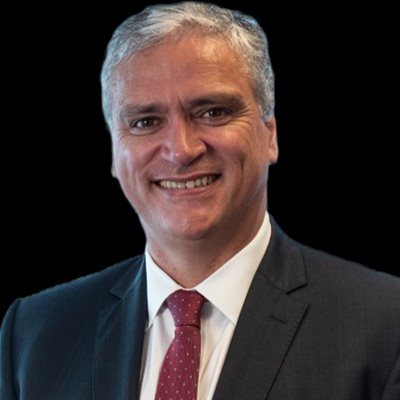Citizens trust regions and cities

Vasco Alves Cordeiro, President of the European Committee of the Regions
Once a year, Brussels becomes the hub of local democracy in Europe. This October, 7500 people from all across the continent came together to debate and exchange.
The European Week of Cities and Regions has built, once more, the so-called bridge between policy makers and stakeholders in Brussels and from the different territories of our Union. Social innovation, ideas on how to foster the industrial transition, breaking barriers for better cross-border cooperation: in hundreds of sessions, these and other key topics for Europe's cities and regions were put in the spotlight.
This edition happened after a record summer in Europe: heatwaves, drought, floods and wildfires were among the challenges of many regions and cities. Our local economies, our tourism industry, our agriculture and food systems: all are being disrupted because of the climate crisis. The urgency to act on all levels of government is omnipresent.
The European Committee of the Regions' flagship publication, the Annual Report on the State of Regions and Cities released during the Week, provided some alarming facts and figures. Without disaster prevention and climate mitigation, the climate crisis and extreme weather events will lead to increasing disparities among regions, with economic sectors like tourism being dramatically affected.
Furthermore, the social and economic consequences of the COVID-19 pandemic and the war against Ukraine have been a heavy weight on the shoulders of European households. 40 million Europeans were not able to keep their homes warm in 2022 due to the energy crises. 32 million Europeans were not able to afford a proper meal every other day due to rising costs of living. In face of this, social cohesion across our territories must remain our goal.
When we discussed the current situation in our regions and cities, it has been inspiring to see that, despite the manifold challenges, solutions are being found everywhere. Local and regional authorities have proved their continuous solidarity with displaced people from Ukraine, with roughly half of the EU’s regions and cities report hosting refugees from Ukraine.
Our Annual Report tells the stories of, for example, consultation centers being opened for Ukrainians in Gdansk, Prague and Berlin, of the Greek island of Halki working on its green, autonomous energy supply, of renovation programmes in Porto, Portugal, and initiatives for phasing out fossil fuels from domestic heating in Plovdiv, Bulgaria.
Those examples also showcase how public investment is the key to achieve the green and digital transitions. Only if we continue to strengthen territorial cohesion, we will avoid a gap between frontrunner regions and those vulnerable to external shocks of our globally interconnected single market. Central to this structural and long-term transformation is cohesion policy.
The European Week of Regions and Cities has also been an important opportunity to discuss ideas for reform. A renovation of cohesion policy is needed for the funding period after 2027, building on its fundamental pillar of partnership with local and regional authorities, whilst improving it so that it is simpler to deliver and more visible to all citizens.
The success of ambitious policies needs a crucial ingredient: trust. Data from the Annual Report shows that the local and regional level of government is one of the most trusted. In view of the European elections in 2024, regions and cities have a role to play We have a responsibility to show that democracy delivers at all levels. We must show what matters to people in the places where they live, in their municipality, city, region.
The EU should promote the multilevel dimension of European democracy and governance and systematically include local and regional authorities in the legislative process of the EU.
Our relations with neighboring countries can also play a much bigger role when it comes to the next wave of EU enlargement. Regions and cities can be patentees of enlargement, as previous waves have shown the crucial role of cooperation in the preparation of the EU acquis.
We need to be ready for this historical step in our common European project and we need to be aware that whatever the cost may be, it would be much costlier to close the door of Europe to the ones who want to be part of this political journey.
Next year, ahead of the European elections, the European Committee of the Regions and the Region of Wallonia will organise the European Summit of Regions and Cities in the city of Mons, on the 18th and 19th of March 2024. This event will be a highlight to showcase innovations from regions and cities, and unite them in their diversity.
The Summit will show how local democracy in Europe looks like, with its more than one million local and regional leaders who are committed to continue building Europe's future, for a Europe made by everyone, for everyone.